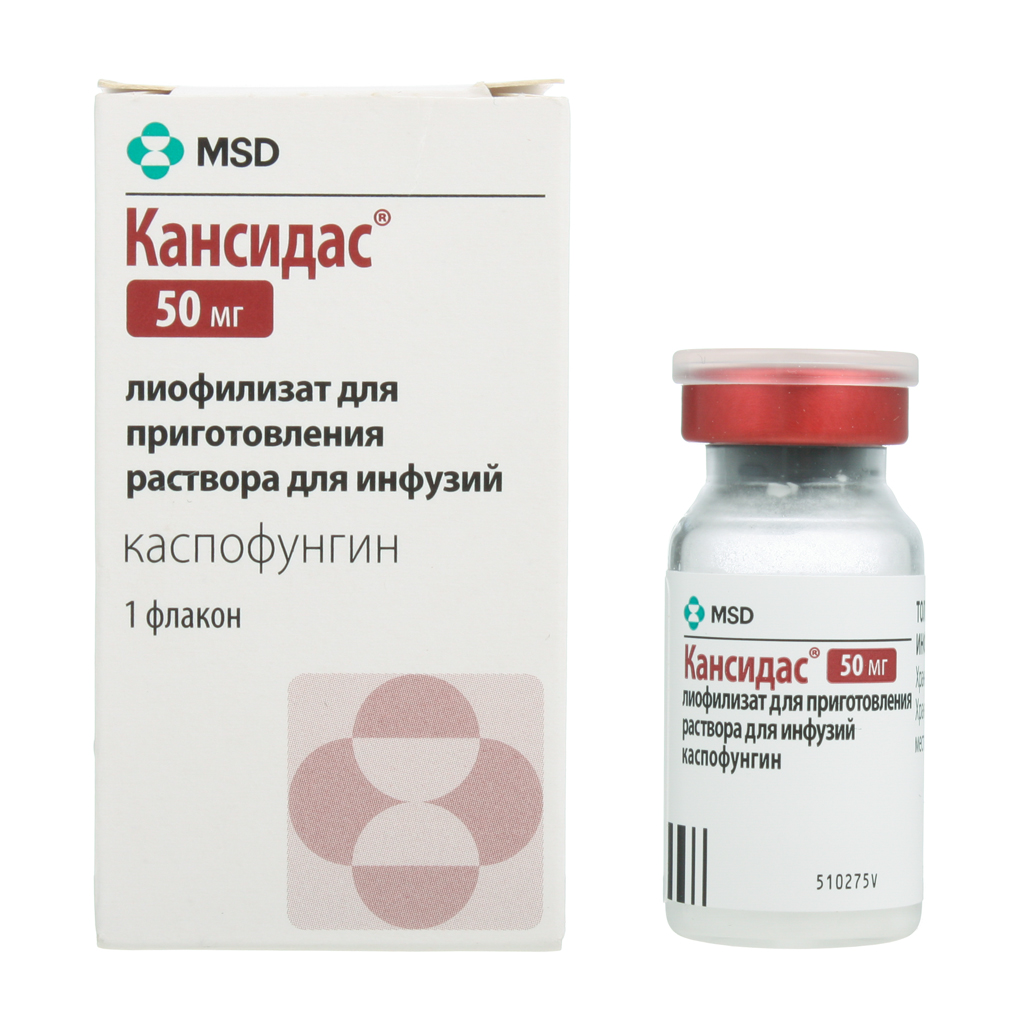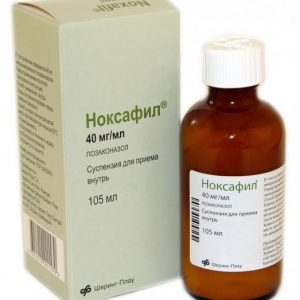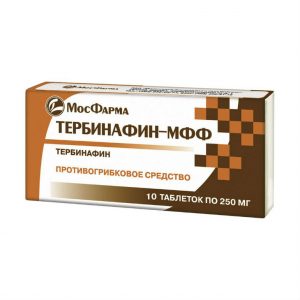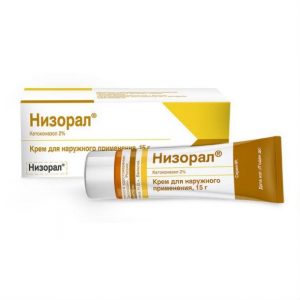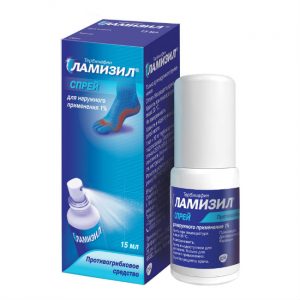Description
Latin name
Cancidas
Packing
Bottle of 10 ml.
Indications
Empirical therapy in patients with febrile neutropenia with suspected fungal infection, invasive candidiasis (including candidaemia) in patients with and without neutropenia, invasive aspergillosis (in patients refractory to another therapy, neperenos) esophageal candidiasis, oropharyngeal candidiasis.
Contraindications
Hypersensitivity.
Use during pregnancy and lactation
There is no clinical experience with the use of Cancidas in pregnant and lactating women. In animals, caspofungin crosses the placental barrier. Caspofungin should not be prescribed to women during pregnancy, except in cases where the appointment of the drug is vital.
Since there is no data on the allocation of caspofungin with milk of a nursing woman, if necessary, the appointment of the drug during lactation should stop breastfeeding.
Composition
1 vial contains:
sp active substance: 50 mg glacial acetic acid, sodium hydroxide.
Dosage and administration of
Intravenous drip for at least 1 hour
Esophageal and oropharyngeal cadidosis: 50 mg once daily.
Aspergillosis: On the first day, a single loading daily dose of 70 mg is administered. In the following days, the daily dose is 50 mg 1 time per day, if necessary, the dose can be increased to 70 mg 1 time per day.
Duration of treatment depends on the severity of the underlying disease, recovery from immunosuppression, and the patient’s clinical response.
Side effects
On the part of the body as a whole: often – fever, headache, chills.
From the digestive system: often – nausea, diarrhea, vomiting, abdominal pain, increased serum activity of ACT, ALT, alkaline phosphatase, direct and total bilirubin.
From the hematopoietic system: often – anemia.
From the cardiovascular system: often – tachycardia, phlebitis / thrombophlebitis, peripheral edema, venous post-infusion complications, hot flashes.
On the part of the respiratory system: often – shortness of breath.
From the skin and subcutaneous fat: rash, itching (including at the injection site), excessive sweating.
On the part of laboratory parameters: often hypoalbuminemia, hypoproteinemia, hypokalemia, hyponatremia, hypomagnesemia, hypocalcemia, leukopenia, neutropenia, thrombocytopenia, eosinophilia, decreased hemoglobin and hematocrit, an increase in partial thromboplastin and prothrombin time, proteinuria, leukocyturia, microhematuria, an increase in serum creatinine concentrations infrequently – hypercalcemia.
There are some reports of rare cases of liver dysfunction and allergic reactions – rash, swelling of the face, itching, feeling of heat or bronchospasm, as well as anaphylaxis. In the post-marketing period, rare cases of liver dysfunction have been identified, as well as peripheral edema and hypercalcemia. In patients with invasive aspergillosis – pulmonary edema, respiratory distress syndrome in adults, x-ray infiltrates.
Drug Interaction
Do not mix with other solutions (including dextrose containing ones). Compatible with 0. 9% NaCl, Ringer lactate solution.
Efavirenz, nelfinavir, nevirapine, rifampicin, dexamethasone, phenytoin or carbamazepine when administered concomitantly lead to decreased plasma caspofungin concentrations.
Does not affect the pharmacokinetics of itraconazole, amphotericin B, rifampicin or the active metabolites of mycophenolate mofetil.
Decreases tacrolimus concentration.
Cyclosporine increases AUC by 35%.
Rifampin can both accelerate and slow the excretion of caspofungin.
Storage Conditions
In a dark place at 2-8 ° C.
Shelf life
2 years.
Deystvuyushtee substance
Caspofungin
Terms and conditions
prescription
Dosage form
solution for infusion
Possible product name Cancidas
0.05 10ML N1 Flake LIOF D / R-D RA / IFN
Cancidas 50 mg 1 fl
Cancidas lyophilizate D / PRIG. R-RA D / INF. 50 MG FL. 10ML
Cancidas vial 50mg
Cancidas vials 50mg, 10ml
